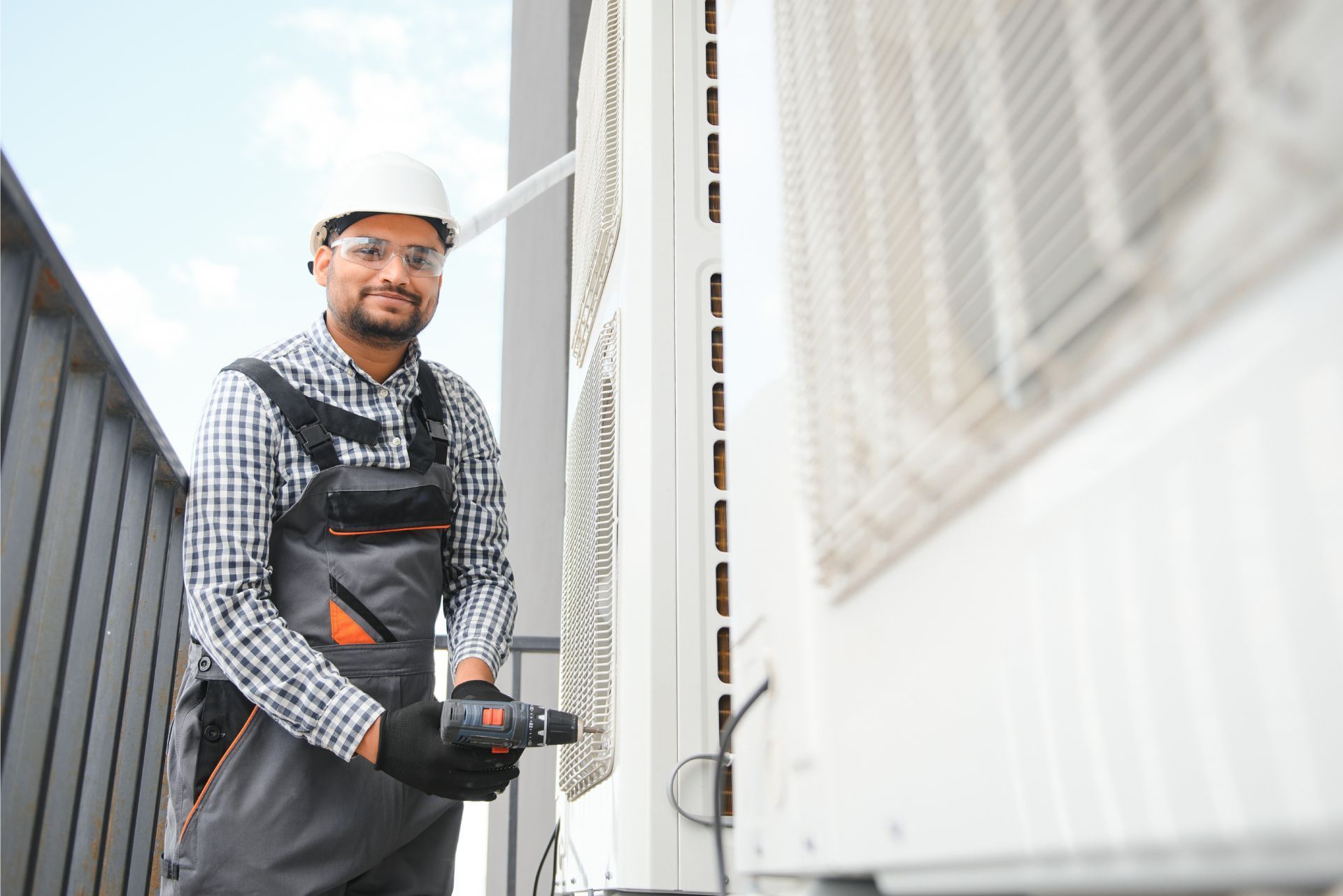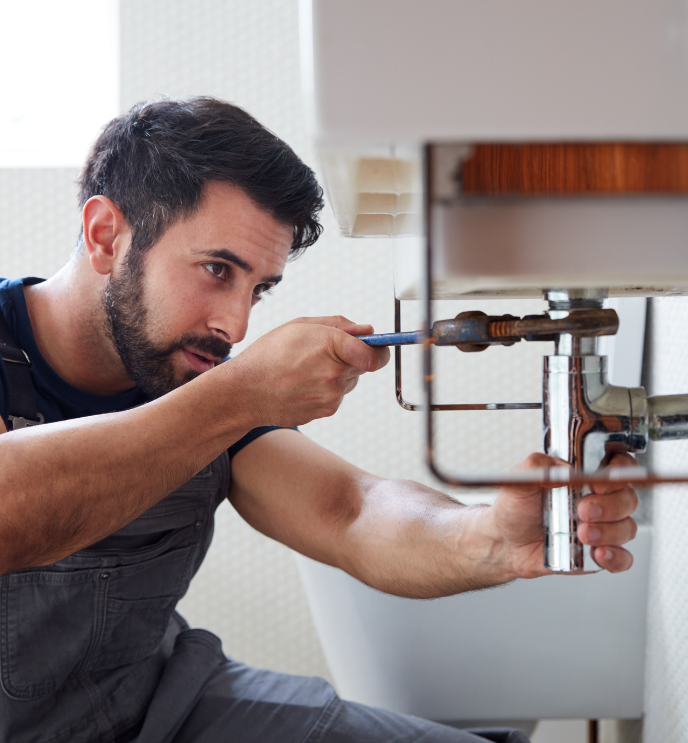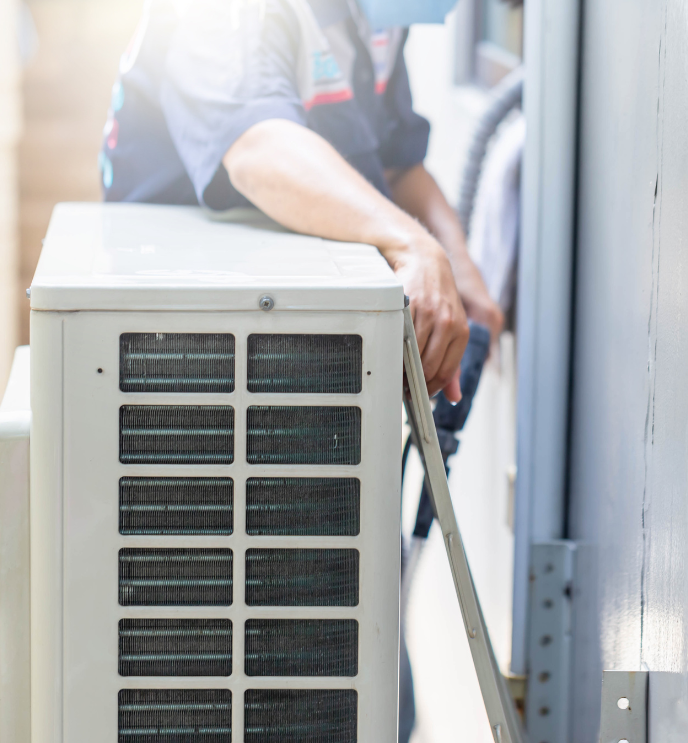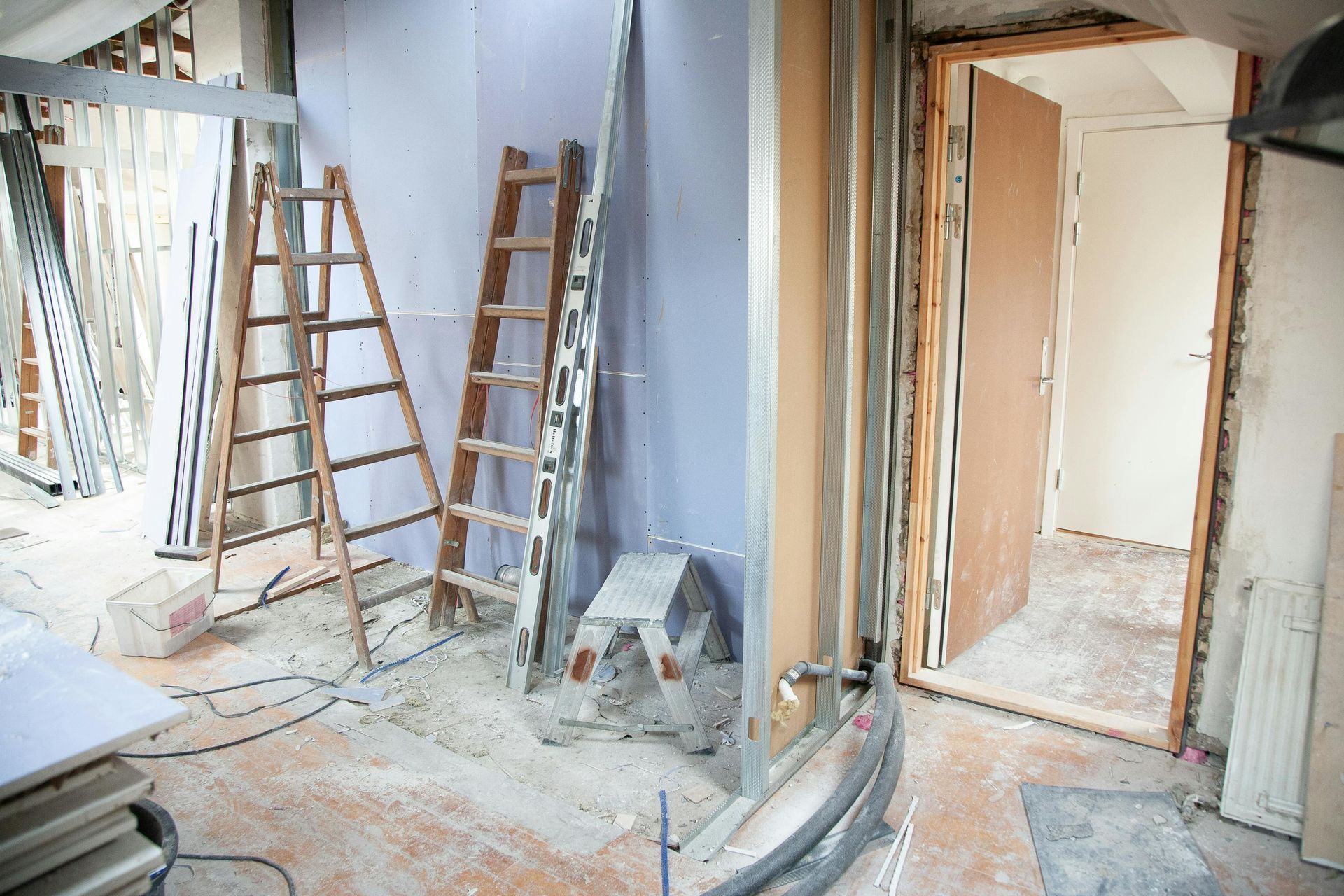Types of Contractors We Serve
Jonathan Behr
Owner of Contractor Insurance Pros by Behr Insurance Services
Index
Contact Us
Phone
Location
Simi Valley, CA 93065
The Woodlands, TX 77382
Katy, TX 77494
In the world of commercial HVAC contracting, the importance of having the right insurance coverage cannot be overstated. This specialized insurance protects contractors from various risks associated with their work, ensuring that they can operate confidently and securely. As the HVAC industry continues to evolve, understanding the nuances of contractor insurance becomes increasingly crucial.
Understanding the Basics of HVAC Contractor Insurance
commercial HVAC contractor insurance is designed to cover the unique risks faced by professionals in this field. From installation to maintenance, HVAC contractors encounter various challenges that can lead to financial loss if not properly insured. Understanding the basics of this insurance can help contractors make informed decisions about their coverage needs.
Types of Coverage
There are several types of insurance coverage that HVAC contractors should consider. Each type addresses different risks and provides essential protection.
- General Liability Insurance: This is the most fundamental type of insurance for contractors. It protects against claims of bodily injury or property damage that may occur during the course of work.
- Workers' Compensation Insurance: This coverage is crucial for protecting employees who may be injured on the job. It covers medical expenses and lost wages, ensuring that workers are taken care of.
- Commercial Auto Insurance: If contractors use vehicles for business purposes, this insurance is necessary to cover accidents and damages related to those vehicles.
Why Insurance is Essential for HVAC Contractors
HVAC contractors face a myriad of risks daily, and having insurance is essential for several reasons. Firstly, it provides financial protection against lawsuits and claims that can arise from accidents or injuries. Without insurance, a single incident could lead to devastating financial consequences.
Secondly, many clients require proof of insurance before hiring a contractor. Having the appropriate coverage not only builds trust with potential clients but also enhances a contractor's credibility in the industry.
Moreover, insurance can also cover the costs associated with equipment breakdowns or theft, which are common in the HVAC industry. Contractors often invest heavily in specialized tools and machinery, and losing these assets can severely impact their ability to operate. Insurance can mitigate these losses, allowing contractors to quickly replace or repair their equipment and minimize downtime.
Additionally, as the HVAC industry evolves with new technologies and regulations, contractors must stay informed about their insurance needs. For instance, as energy-efficient systems become more prevalent, contractors may need to adjust their coverage to include new types of installations and services. Keeping abreast of industry trends and updating insurance policies accordingly ensures that contractors are fully protected against emerging risks.

Evaluating Your Insurance Needs
Determining the right amount and type of insurance coverage is crucial for HVAC contractors. Each business is unique, and various factors can influence insurance needs.
Assessing Business Size and Scope
The size of the business and the scope of work significantly impact insurance requirements. Smaller contractors may find that basic general liability and workers' compensation insurance suffice, while larger companies might need more comprehensive coverage, including professional liability insurance.
Additionally, contractors who specialize in specific areas, such as commercial refrigeration or industrial HVAC systems, may require specialized coverage to protect against unique risks associated with those services. For instance, a contractor working with high-pressure systems may need additional coverage for equipment failure or accidents that could lead to significant financial loss. Understanding the nuances of each service offered can help tailor insurance policies to better fit the specific risks involved.
Understanding State Regulations
Insurance requirements can vary by state, making it essential for contractors to understand the regulations in their area. Some states mandate specific types of insurance, while others may have minimum coverage amounts. Staying compliant with these regulations is critical to avoid penalties and ensure smooth business operations.
Moreover, it’s important to note that local municipalities may have additional insurance requirements that could affect your operations. For example, certain cities might require contractors to carry specific liability limits or additional endorsements for environmental hazards, especially if they work on older buildings that may contain hazardous materials. Engaging with a knowledgeable insurance agent who specializes in the HVAC industry can provide invaluable insights into these local nuances, ensuring that your coverage is not only compliant but also adequately protects your business against potential liabilities.
Common Risks Faced by HVAC Contractors
HVAC contractors encounter various risks that can lead to significant financial loss. Understanding these risks can help contractors choose the right insurance coverage.
Property Damage
Accidental damage to a client's property is one of the most common risks faced by HVAC contractors. Whether it's damaging a wall during installation or accidentally spilling refrigerant, these incidents can lead to costly repairs. General liability insurance provides coverage for such situations, protecting contractors from financial liability. Additionally, the potential for property damage extends beyond just physical harm; it can also include damage to a client's reputation if a project is not completed to their satisfaction. This underscores the importance of maintaining clear communication with clients and ensuring that all work is performed to high standards to mitigate these risks.
Injuries on the Job
Working with heavy equipment and hazardous materials poses a risk of injury for HVAC contractors. From slips and falls to more severe accidents, injuries can occur unexpectedly. Workers' compensation insurance is crucial for covering medical expenses and lost wages for injured employees, ensuring they receive the care they need while protecting the business from lawsuits. Furthermore, implementing rigorous safety training programs can significantly reduce the likelihood of accidents. By educating employees on proper lifting techniques, the safe handling of tools, and the importance of using personal protective equipment, contractors can create a safer work environment and foster a culture of safety that benefits everyone involved.
Equipment Breakdown
HVAC systems are complex and can break down unexpectedly, leading to costly repairs and lost income. Equipment breakdown insurance can help cover the costs associated with repairing or replacing essential tools and machinery, allowing contractors to resume work quickly without incurring significant financial strain. Moreover, regular maintenance and inspections of equipment can prevent unexpected breakdowns. By establishing a proactive maintenance schedule, contractors can identify potential issues before they escalate, ensuring that their tools remain in optimal working condition and minimizing downtime. This not only protects the contractor's investment but also enhances their reputation for reliability among clients.
Choosing the Right Insurance Provider
Once the necessary types of coverage have been identified, the next step is selecting the right insurance provider. This decision can significantly impact the quality of coverage and support received.
Researching Insurance Companies
When choosing an insurance provider, conducting thorough research is essential. Look for companies that specialize in contractor insurance, as they will have a better understanding of the unique risks faced by HVAC professionals. Reading reviews and testimonials can provide insights into the experiences of other contractors with specific insurers. Additionally, consider reaching out to industry associations or local trade groups, as they often have recommendations for reputable insurance providers that cater specifically to HVAC contractors. Networking with peers can also yield valuable information about which insurers are known for their reliability and customer service.
Comparing Quotes
Obtaining multiple quotes is a wise strategy when shopping for insurance. This allows contractors to compare coverage options, premiums, and deductibles. However, it's crucial to ensure that the quotes are for comparable coverage levels to make an accurate comparison. Take the time to analyze the policy details, including any exclusions or limitations that may affect your coverage. Some insurers may offer additional benefits, such as risk management resources or claims assistance, which can be invaluable in the event of an incident. Furthermore, consider the financial stability of the insurance company, as this can impact their ability to pay claims in the future. Look for ratings from independent agencies to gauge their financial health and reliability.
Cost Factors for HVAC Contractor Insurance
The cost of commercial HVAC contractor insurance can vary widely based on several factors. Understanding these factors can help contractors budget for their insurance needs effectively.
Business Size and Revenue
Generally, larger businesses with higher revenue will pay more for insurance coverage. Insurers assess the risk associated with the business size and the volume of work performed. Contractors should be prepared to provide financial information to insurers to receive accurate quotes. Additionally, the geographical area in which the business operates can also play a significant role; for instance, contractors in urban areas with higher living costs may face increased premiums compared to those in rural settings. This is due to the higher likelihood of claims and the increased cost of labor and materials in densely populated regions.
Claims History
A contractor's claims history can significantly impact insurance premiums. A history of frequent claims may lead to higher rates, as insurers view this as an indication of increased risk. Conversely, a clean claims history can result in lower premiums and better coverage options. It's also important to note that the nature of past claims matters; claims related to worker injuries, property damage, or equipment failure can weigh more heavily than minor incidents. Contractors who actively implement safety training programs and risk management strategies may not only reduce the likelihood of claims but also demonstrate to insurers their commitment to minimizing risk, potentially leading to discounts on their premiums.
Tips for Lowering Insurance Costs
While insurance is a necessary expense, there are strategies contractors can employ to help lower their insurance costs without sacrificing coverage quality. Understanding the nuances of insurance policies and the factors that influence premiums can empower contractors to make informed decisions that can lead to substantial savings.
Bundle Policies
Many insurance providers offer discounts for bundling multiple policies. For instance, combining general liability and workers' compensation insurance can lead to significant savings. Contractors should inquire about bundling options when obtaining quotes. Additionally, some insurers may provide further discounts for including property insurance or commercial auto insurance in the bundle, creating a comprehensive coverage package that not only saves money but also simplifies management of policies.
Implement Safety Training Programs
Investing in safety training programs for employees can reduce the likelihood of accidents and injuries on the job. Insurers often reward businesses with lower premiums for demonstrating a commitment to safety. Regular training and adherence to safety protocols can lead to long-term savings on insurance costs. Furthermore, fostering a culture of safety within the organization not only protects employees but also enhances overall productivity and morale, as workers feel more secure in their environment. Engaging employees in safety drills and providing them with the latest safety equipment can further mitigate risks and demonstrate to insurers that the business is proactive in managing potential hazards.
Maintain a Good Claims History
Another effective way to lower insurance costs is to maintain a clean claims history. Insurance companies often assess the number and severity of claims when determining premiums. By minimizing claims through effective risk management strategies, contractors can position themselves as lower-risk clients. This could involve regular maintenance of equipment, prompt reporting of incidents, and thorough documentation of all safety measures taken. In addition, contractors should consider implementing a claims review process to identify patterns and areas for improvement, which can further enhance their risk profile and potentially lead to lower rates over time.

The Claims Process
Understanding the claims process is essential for HVAC contractors. In the event of an incident, knowing how to navigate the claims process can make a significant difference in the outcome. A well-managed claims process not only expedites repairs but also helps maintain client trust and satisfaction, which are crucial for the long-term success of any HVAC business.
Reporting Incidents
Promptly reporting incidents to the insurance provider is crucial. Contractors should document the details of the incident, including photographs, witness statements, and any relevant information. This documentation will be invaluable when filing a claim. Additionally, it’s important to keep a detailed log of any communications with the insurance company, including dates, times, and the names of representatives spoken to. This can help clarify any misunderstandings and serve as a reference if disputes arise later in the process.
Working with Adjusters
Insurance adjusters play a key role in the claims process. They assess the damage and determine the amount of compensation owed. Contractors should be prepared to provide any necessary documentation and cooperate fully with the adjuster to ensure a smooth claims process. It can also be beneficial for contractors to familiarize themselves with common industry standards for repairs and replacements, as this knowledge can aid in discussions with the adjuster. Understanding the nuances of the insurance policy, including any exclusions or limitations, will empower contractors to advocate effectively for their claims and ensure they receive fair compensation.
Understanding Policy Coverage
Before an incident occurs, HVAC contractors should take the time to thoroughly review their insurance policy. Understanding the coverage limits, deductibles, and specific terms can prevent surprises during the claims process. For instance, knowing whether equipment breakdowns are covered or if there are specific exclusions for certain types of damage can help contractors make informed decisions about their operations and risk management strategies. Regularly consulting with an insurance agent can also provide insights into any changes in coverage that may be necessary as the business grows or evolves.
Preparing for Future Claims
After navigating a claim, contractors should take the opportunity to evaluate their current practices and identify areas for improvement. This could involve implementing more rigorous safety protocols or investing in additional training for staff to minimize the risk of future incidents. Additionally, establishing a proactive relationship with the insurance provider can lead to better support during future claims. By maintaining open lines of communication and understanding the insurer's expectations, contractors can streamline the process and potentially enhance their coverage options for the future.
The HVAC industry is constantly evolving, and staying informed about changes can help contractors adapt their insurance needs accordingly. Regularly reviewing policies and coverage options is essential to ensure adequate protection.
Continuing Education
Participating in continuing education programs can help contractors stay up to date on industry trends and best practices. Many organizations offer training and resources that can enhance knowledge and skills, ultimately benefiting the business.
Networking with Peers
Networking with other HVAC professionals can provide valuable insights into insurance trends and challenges. Joining industry associations or attending conferences can facilitate connections and foster knowledge sharing among peers.
Conclusion
In conclusion, commercial HVAC contractor insurance is a vital component of running a successful HVAC business. Understanding the various types of coverage, assessing individual needs, and choosing the right provider are all critical steps in ensuring adequate protection. By staying informed about industry changes and implementing safety measures, contractors can not only safeguard their businesses but also enhance their credibility and attract more clients.
Investing in the right insurance coverage is not just a legal requirement; it is a strategic move that can lead to long-term success in the competitive HVAC industry. With the right protection in place, contractors can focus on what they do best—providing high-quality HVAC services to their clients.
Areas we serve









